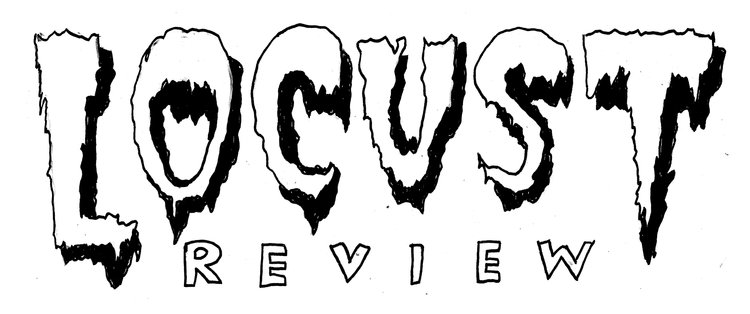Mary Shelley
Pier Paolo Pasolini’s The Hawks and Sparrows (1967)
Luis Bunuel’s Exterminating Angel (1962)
Boots Riley’s Sorry to Bother You (2018)
Calling all comrade-artists and writers!
You’re an artist, poet, author, playwright, an unearthly creator of the fantastic and terrifying. You’ve decided to destroy capitalism. Only social movements and struggle, from below, of the exploited and oppressed, can overthrow capitalism. Nevertheless, art is a human necessity, and an arena for the contestation of the imaginary. To that end, Locust Review, a quarterly socialist publication of critical irrealist art and literature, needs you.
By critical irrealism we mean art and literature that, by virtue of otherworldliness, of “alterity,” allow for a critical approach to the social. Especially today, when images of war, police terror, and other capitalist horrors, seem to re-assert capitalist norms, the irreal image and narrative can create critical distance; allowing the viewer and reader to reflect.
By virtue of this irrealism, we hope to avoid the reductive manner in which “socialist realism” has often treated the working-class subject. The problem is not just that capitalism destroys the workers’ lives through exploitation, oppression, and alienation. The problem is also that capitalism destroys the specific unique life of each individual worker. Every time it crushes one of us, it crushes an entire imaginary, an entire life of world-building, poems made, relationships cultivated, performances encoded.
Irrealism has been part of socialist literature and culture from the beginning. The existence of the fantastic and bizarre, at some level beyond utilitarian exchange value, can animate the proletarian mind. The 18th and 19th century Utopian Socialists imagined worlds in which the seas turned to lemonade, and the heavens themselves wept for proletarian liberty.
A specter, or hobgoblin, in Karl Marx’s Communist Manifesto, haunts, or stalks, Europe. Walter Benjamin’s “Angel of History” surveys the catastrophe of class society’s “progress.” J. Posadas notoriously opined that capitalism refused to research the phenomena of UFOs because they existed outside the circuit of capital accumulation.
At its best, irrealism is critical, using the fantastic against the banal exploitation and mundane brutality of everyday life under capitalism. The first cultural rebellion against capitalism, the Romantics, employed critical irrealism in their work; in Mary Shelley’s Frankenstein, in William Blake’s illuminated prophecies about the French and American Revolutions.
The surrealist, Luis Buñuel, in his 1962 film, Exterminating Angel, depicted a mysterious force that traps a bourgeois dinner party in a Mexico City mansion. The well-heeled guests descend into barbarism. Pushed from the centers of American culture by McCarthyism, Popular Front artists, in pulp, noir, and science-fiction, traced critiques of post-war capitalism through an irreal lens. Pier Paolo Pasolini’s 1967 film, The Hawks and the Sparrows, used religious parable to critique petit-bourgeois competition. A few years ago the socialist speculative fiction author China Miéville compiled a list of “50 Sci-Fi and Fantasy Works Every Socialist Should Read.”
The narrowing brutality of capitalist realism has, paradoxically, attenuated the absurdity of working-class life. What does it mean that Black Lives Matter has proven the reality of racist police terror in the US; yet most of the bourgeois political establishment has, more or less, shrugged (or worse)? Every day we see thousands of people begging for money on the Internet to pay for medical care, and the bourgeoisie, again, shrugs. Around the world new and old fascisms stir; in India, in Bolivia, in Charlottesville, in France. But, in the face of this barbarism, the liberal bourgeois is far more concerned with the “threat” of socialism.
There is a default irrealism as we navigate through capitalist realism -- in the collapse of genres, in new socialist films such as Boot Riley’s Sorry to Bother You.
Locust Review aims to support and spread the new socialist critical irrealism; to bring the working-class imaginary down, like a hammer, on the false realisms of contemporary capitalism. Locust Review needs you! More specifically, we need your revolutionary fiction, creative non-fiction, poetry and art — to conjure visions of the future and past against the tyranny of the present. We are now accepting submissions for our second issue at locust.review@gmail.com. The deadline for submissions is February 1st, 2020.
In struggle,
Locust Arts and Letters Collective
Subscribe to Locust Review for as little as $1 a month.
To submit work to Locust Review e-mail us at locust.review@gmail.com.



